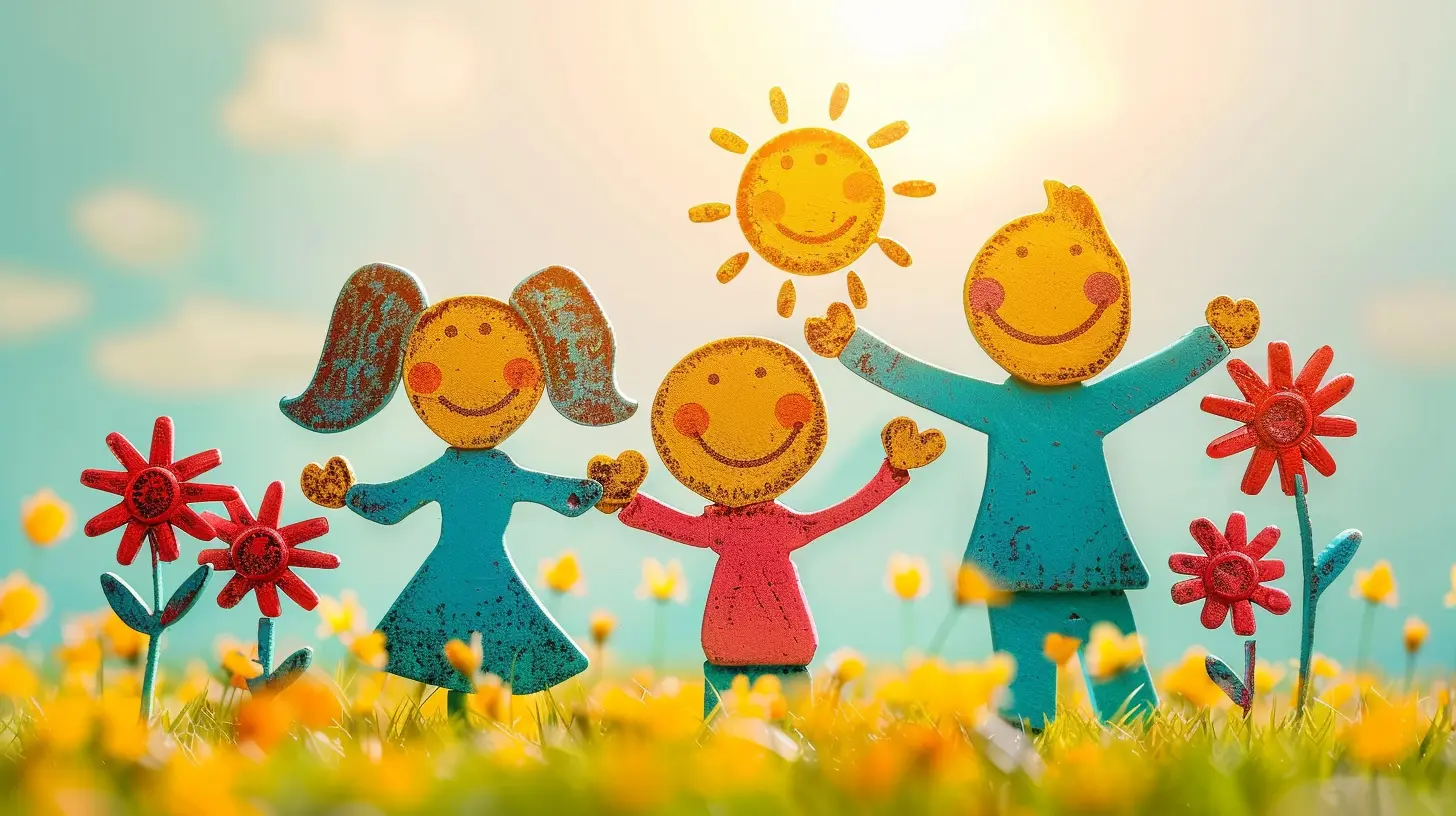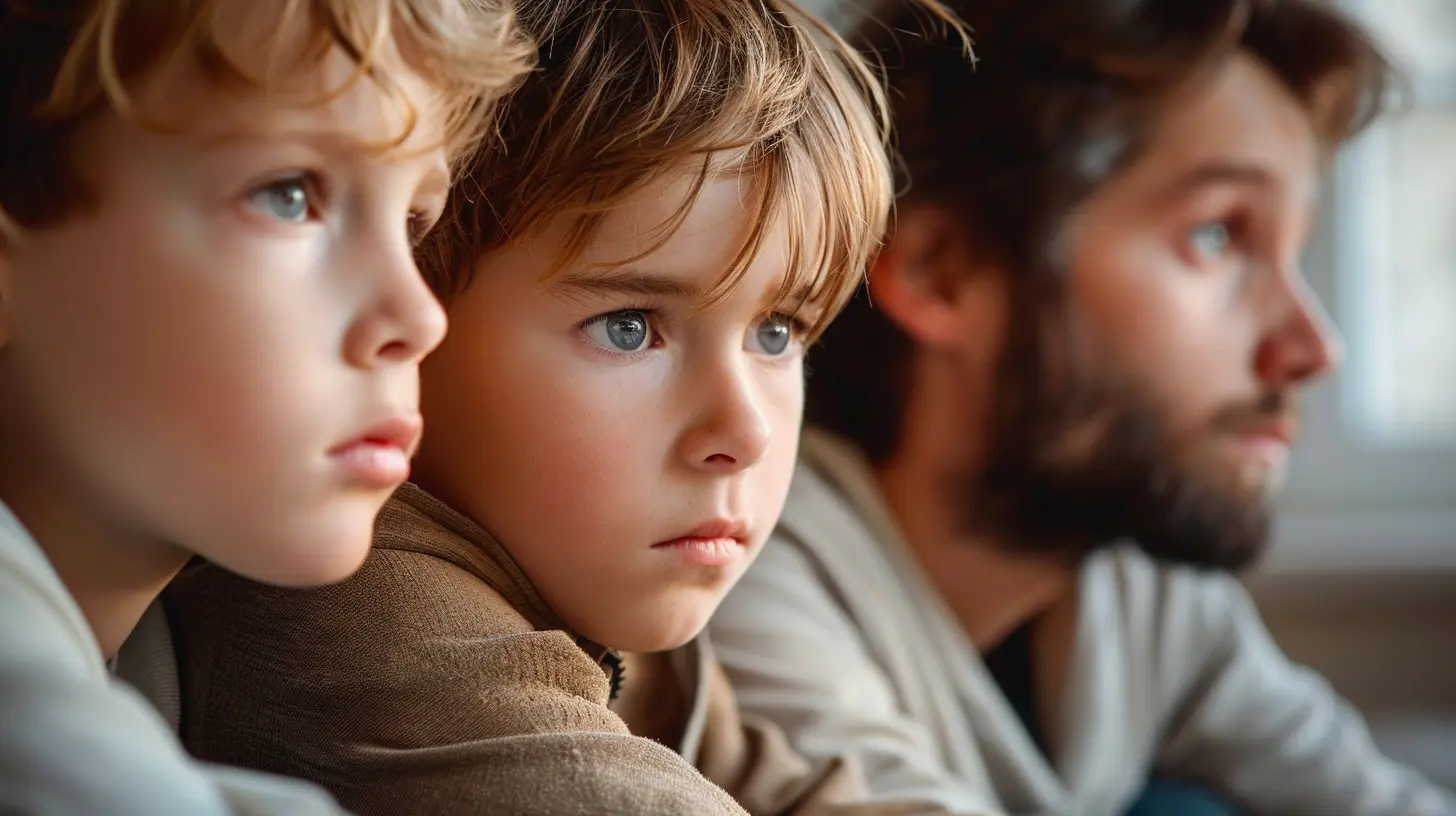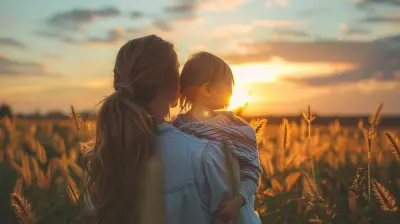Setting Positive Examples of Relationships for Your Kids as a Single Parent
26 September 2025
Let’s be real for a second—parenting is already a wild rollercoaster. Now imagine riding that coaster solo. As a single parent, you’re juggling work, home, bills, school events, bedtime meltdowns, and perhaps even your own emotional healing. And somewhere in that beautiful, chaotic mix, one thing matters just as much as the basics: the kind of relationships your child witnesses through your eyes.
Whether you've been single parenting for years or just stepping into it, one thing's for sure—your kids are watching. And they’re learning. Every. Single. Day.
So, how do you, as one amazing single parent, set a positive example of what healthy relationships look like—especially if you're not currently in one?
Let’s unpack this together.
Why It Matters More Than You Think
It’s easy to assume kids are too young to truly understand complex emotions or relationships. But they’re sponges—wide-eyed observers soaking up everything from how you solve arguments to how you treat yourself. Children build their future relationship playbook based on what they experience growing up, not just what they’re told.Your role as a relationship role model doesn’t hit pause just because you’re no longer with your partner. In fact, this might be your most powerful teaching moment yet.
Rewriting the Definition of "Relationship"
First off, let's break free from the notion that “relationship example” = romantic relationship. That’s just one slice of the pie. Relationships are everywhere—between you and your kids, your friends, your parents, your co-workers, even yourself.So yes, your dating life (or non-existent dating life) matters, but it's only part of the overall picture. It’s how you treat others, how you set boundaries, how you forgive, how you handle disagreements, and even how you talk about your ex that paint the full picture.
Kids don’t need to see a perfect romance. But they do need to see respect, kindness, accountability, and love in action.
Show, Don’t Just Tell: Leading By Example
You can’t just preach kindness and expect your child to emulate it if you’re yelling at the delivery guy or slamming doors during a difficult conversation. Modeling behavior isn’t about being flawless—it’s about showing up with integrity even in messy moments.Here are a few ways to walk the talk:
1. Speak Kindly—Especially About the Other Parent
Even if your ex is the last person you want to talk about, your child still sees them as half of their identity. When you bash your co-parent, your child absorbs that as a reflection of themselves. It gets sticky real fast.Instead, stick to neutral or positive language. Focus on the behavior, not the person. Say things like, “Your dad and I didn’t agree on some things, but we both love you deeply.”
That sentence alone teaches more about emotional maturity than any lecture on love ever could.
2. Master the Art of Conflict Resolution
Do you know those moments when your temper is about to snap like an overcooked spaghetti noodle? Yep, those moments are gold.How you handle conflict—whether it's with a friend, family member, or even someone on the phone—teaches your child volumes on emotional regulation. Apologize when you mess up. Use “I” statements. Take deep breaths. Talk things through calmly.
Conflict doesn’t have to be scary. When handled with grace, it becomes a tool for connection. Your kids need to see that.
3. Let Them See Respect in Action
Whether it’s how you treat the cashier at the grocery store or how you interact with their teacher, everyday moments are golden opportunities for modeling mutual respect.Respect isn’t just about being polite—it’s about listening, seeing value in someone else’s perspective, and honoring boundaries. Let your child see you offering help, setting boundaries, and standing up respectfully when needed.
Love Starts With You: Modeling Self-Love and Boundaries
We often forget that the most important relationship we’ll ever model for our kids is the one we have with ourselves.4. Be Kind to Yourself, Loudly
Kids are listening when you’re staring in the mirror. If you criticize yourself out loud or diminish your own needs, they notice. But if you say, “I’m proud of how I handled that,” or “I need some alone time to recharge,” they learn self-worth and self-care.Teach them that loving oneself isn’t just bubble baths and pep talks—it’s setting limits, honoring your needs, and forgiving yourself when life gets messy.
5. Demonstrate Healthy Boundaries
Let’s say you’ve got a family member who’s always overstepping. How you respond—calmly, firmly, and respectfully—teaches your kids how to protect their own peace.Boundaries aren’t walls to keep people out. They’re bridges that protect connection while preserving individuality. And guess what—your kids are taking notes.
When and How to Introduce Dating
Let’s talk about the elephant in the room: dating after divorce or separation. Should you date in front of your kids? Wait until it's serious? Never date again? (Just kidding... kind of.)There’s no one-size-fits-all rule here. But there are a few guiding principles to keep things healthy.
6. Don't Rush the Introduction
Introduce someone new to your kids only when it’s a serious, stable relationship. Constantly introducing short-lived partners can create confusion and instability. Children need consistency to feel secure.7. Model Healthy Dating Behavior
When you’re finally in a relationship worth sharing with your kids, let them see the good stuff. Not just the happy moments but the communication, compromise, and mutual respect.You’re showing them that love doesn’t mean losing yourself. It means being with someone who supports and respects who you already are.
8. Create Space for Questions
Your child might be curious. They might even be upset. Dating as a single parent comes with emotions—for everyone involved.Let your kids ask questions. Be honest, age-appropriate, and patient. Reassure them that no matter what, your love for them never changes and that they’re still your number-one priority.
Teaching Through Non-Romantic Relationships
Now, maybe you’re not dating. Maybe you’re not planning to. That’s perfectly valid—and still a powerful teaching moment.9. Nurture Friendships Openly
Let your child see you being a good friend. Host a movie night, check in on someone who’s going through a hard time, offer help without expecting something back.Friendships often outlast romances, and teaching your child to cultivate deep, meaningful connections is just as vital.
10. Teach Consent and Communication
Relationships aren’t just about affection—they’re about communication, setting limits, and hearing “no” without flipping out.Whether it’s tickle fights at home, asking before borrowing something, or stopping when someone is upset—those small lessons in consent and respect build a rock-solid foundation for future healthy relationships.
It’s Okay Not to Be Perfect
Let’s face it—there will be moments when you flub it. You’ll lose your temper. Say something you regret. Slam a door so hard it shakes the whole house. And in all of that? There’s still growth.11. Own Your Mistakes
Apologize to your kids when you're wrong. It won’t make them think less of you—it will build trust. It shows that even adults mess up, and what matters is how we take responsibility and make things right.Repair is one of the most powerful tools in relationship-building. Your kids don’t need you to be perfect. They need to see that love includes forgiveness, growth, and effort.
Final Thoughts: Your Relationship Legacy
You might worry that your kids will struggle in relationships because they didn’t grow up with two parents under one roof. But here’s the truth:What shapes your child’s view of relationships isn’t the presence or absence of a partner. It’s what they witness every day.
By nurturing emotional intelligence, modeling respect, practicing empathy, and building strong, loving relationships with those around you, you're already setting a beautiful, powerful example.
You’re not just raising a child. You’re raising someone’s future partner, friend, coworker, and role model. And they’re learning from the best—you.
Quick Recap: 10 Ways to Set Positive Relationship Examples
1. Speak kindly about their co-parent2. Handle conflict with grace
3. Show respect in all your interactions
4. Model self-love and self-respect
5. Set and maintain healthy boundaries
6. Introduce partners responsibly
7. Exhibit healthy relationship dynamics
8. Encourage open, honest communication
9. Nurture friendships and community ties
10. Normalize apology and repair
all images in this post were generated using AI tools
Category:
Single ParentingAuthor:

Steven McLain
Discussion
rate this article
1 comments
Morgan Hubbard
Show them love, kindness, and resilience daily!
September 30, 2025 at 2:54 AM

Steven McLain
Absolutely! Modeling love and resilience helps children learn the importance of healthy relationships. Thank you for your thoughtful comment!


